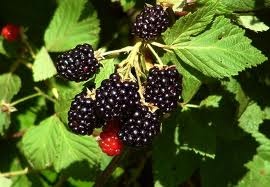When should you start taking prenatal vitamins?
The best time to start taking prenatal vitamins is when you’re trying to conceive — so in essence you can take a prenatal vitamin without being pregnant. This will ensure that when you do become pregnant your new growing baby will have the nutrients he needs.
If you just found out you are pregnant, start taking prenatal vitamins as soon as you can. Your Ob/Gyn or midwife can prescribe prenatal vitamins for you or you can take one over the counter.
I found during my first trimester, I felt very sick from the side effects of the prenatal vitamins in pill form…I just had to grin and bear it. But you don’t — ask your Ob/Gyn to prescribe chewable prenatal vitamins. These are easier to digest and won’t upset your stomach as easily. I started taking chewable prenatal vitamins in my second trimester and it made such a difference in how I felt.
A brief story on chewable prenatal vitamins. I watched an episode of 19 Kids and Counting where Michelle Dugger talked about taking her prenatal vitamins in pill form. She said that she had gone to the doctors, and they found several undigested tablets in her intestines. She switched to chewable prenatal vitamins and her body is now able to absorb the nutrients needed for her pregnancies.
Some of the side effects you might experience from prenatal vitamins include an upset stomach and/or headache. If you have difficulty breathing, swelling in your face, lips, tongue or throat — seek emergency medical help immediately. These kind of symptoms can be life threatening. I would suggest talking with your Ob/Gyn about any known allergies before taking prenatal vitamins.
Reading the labels and taken as directed,
prenatal vitamins will benefit your pregnancy, and they are not expected to cause serious side effects. Your Ob/Gyn can give you more information about the known side effects of the prenatal you are taking.
Prenatal Vitamins have many healthy benefits?
Prenatal vitamins are different from an everyday multivitamin because they contain additional amounts of folic acid, calcium, and iron.
Folic Acid
It’s important to give your baby nutrients like folic acid also called folate. Folic acid is a B vitamin (B9) found in leafy greens like kale and spinach. Also, you can find it in avocados, broccoli, asparagus, black-eyed peas, pinto beans or chickpeas, and sunflower seeds.
Research has shown that women who get 400 micrograms of folic acid before and after conception significantly reduce the risk of having a baby born with a serious neural tube defect. Eating healthy while pregnant is especially important, but may not be enough to give your baby all the nutrients he needs to grow. That is why taking prenatal vitamins is crucial to the healthy development of your baby.
Calcium
Calcium is important because it helps build strong bones and teeth for both you and your baby. It is one of the most plentiful minerals in your body.
Since your growing baby will use part of your daily supply of calcium for his needs, its important to take a prenatal vitamin and eat foods rich in calcium. A lot of fruit and veggies contain calcium. Here is a list of veggies that contain the most calcium:
– Butternut squash…delicious baked, then add butter, salt and cinnamon
– Celery…make a traditional ants on a log with peanut butter and raisins
–Broccoli…jazz up broccoli with a cheese sauce
–Kale…my favorite — Kale chips right out of the oven…delicious
–Brussel Sprouts…these might not make the dinner table in many households, but they do contain plenty of calcium
Here are a few other veggies…bok choy, okra, parsnips, swiss chard, french beans and turnips.
Now onto fruits. These fruits contain an excellent amount of calcium. While pregnant they might be easier to digest than veggies:
Blackberries, mulberries, oranges, grapefruit, pears, kiwi, prunes, apricots, rhubarb and dates
Iron
Many women do not get enough iron and suffer from iron deficiency anemia. It’s important to take prenatal vitamins to get the additional iron. Sometimes the additional iron can upset your stomach…talk with your Ob/Gyn if this is the case. Also, include iron rich foods in your diet like:
– Red meat (please make sure it is well done)
– Dark leafy greens like spinach and collards
– Beans
– Lentils
– Chick peas (try hummus)
If you are feeling fatigued from your pregnancy, trying increasing your intake of iron rich foods. Iron is essential for making hemoglobin. This is the protein in red blood cells that has the important job of carrying oxygen to other cells. The blood volume in your body increases significantly while pregnant especially in the third trimester. You’ll have almost 50% more than when you weren’t pregnant. So essentially you need iron to make more hemoglobin and you need extra iron for your growing baby and placenta. Pregnancy takes it’s toll on you physically. Eating more iron rich foods and taking a prenatal vitamin will help you to feel more like yourself.
In addition, if you eat iron rich foods along with foods that contain an excellent amount of vitamin C, your body can better absorb the iron. So pair an iron rich food with a vitamin C food and your body with absorb the iron more efficiently. Vitamin C rich foods include guavas, bell peppers, fresh herbs like thyme and parsley, broccoli, cauliflower, brussel sprouts, kiwi fruit, oranges, clementines, papayas and strawberries.
A healthy pregnancy diet and prenatal vitamins (pill or chewable) are important for a healthy pregnancy.
Knowing when to take prenatal vitamins, being consistent in taking them and eating a well balanced
pregnancy diet will enable you to have a healthy pregnancy!



















